It goes on one at a time,
it starts when you care
to act, it starts when you do
it again after they said no,
it starts when you say We
and know who you mean, and each
day you mean one more.
—from Marge Piercy’s
“The Low Road”
A surprising number of faculty members took the time to thank me for my message about unity in the last issue of Union Action, so that topic must have struck a chord. Perhaps ironically, we have also heard from members who say that the union is creating outright divisiveness between part- and full-time faculty. We’ve heard from full-time faculty that the union only supports part-timers, and likewise from part-time faculty who say we only care about full-timers.
Things are falling apart—not just at City College of San Francisco or in California, but nationally—for a large chunk of the population. In some respects, our CCSF community has done better than most, but we’re not immune, and things have taken a turn for the worse.
In Union Action, we’ve written about the deepening crisis in California’s community colleges and the systematic defunding of our public education system. We’ve also talked about how, after decades of shifting the burden off the wealthy and corporations, the lowest income families pay the largest share of their incomes in state and local taxes, as the California Budget Project has repeatedly demonstrated. But what about California’s broader labor market? In an April 2012 UC Berkeley policy brief, “A Depressive State: Assessing California’s Labor Market Four Years after the Onset of the Great Recession,” Sylvia Allegretto and Luke Reidenbach present a bleak but enlightening analysis (http://bit.ly/CAlaborMarketStudy).
Allegretto and Reidenback demonstrate that Californians have been hit disproportionately by un- and under-employment and by budget cuts—especially in the public sector. As educators of the 99 percent, we should note the impact of defunding public education – working families lose access not just to current educational attainment, but to long-term gains that education provides. Historically, two major pathways into the middle class have been good union jobs, and education. Both are endangered.
Currently, the news on California’s jobs crisis is bleaker than in the rest of the country. As a state, we are down more than one million jobs, leaving us with the same number we had in 1999. Since the beginning of the recession, the state has lost 7.3 percent (about 129,000) of local jobs, primarily from EC/K-12 and higher education.
Even with the economic turmoil in the state, AFT 2121 has sought to protect jobs. City College bucked the trend the last few years, adding few people to the unemployment statistics. (Until recently, we even continued to make some progress with increased full-time hires.) Sadly, that is no longer the case. After several years of pushing back on the state’s growing mandate to serve fewer students, this semester’s surprise deep cuts from the state, along with the college’s inability to stick to its adopted budget, swamped us, and we are seeing substantial layoffs for the first time in this fall’s schedule.
The “recovery” we’re told has been in process for the last several years isn’t much of one, not for us in the 99 percent, anyway. Though there have been slight economic improvements overall, recent analysis shows that this so-called recovery has actually increased inequality in the United States, with a whopping 93 percent of the 2009 and 2010 economic gains under this “jobless recovery” going to the country’s top 1 percent.
Meanwhile, most of our wages statewide slide downward: while California’s top earners have seen some improvement, most workers’ wages last year matched what they made in 2000. Overall household incomes, adjusted for inflation, are at 1998 levels. At CCSF, faculty members haven’t seen a cost of living increase in years, many have lost steps, and we’ve now had two years of across-the-board wage cuts, meaning faculty members are concerned about their ability to support their families.
We’ve sought to protect faculty’s base wages: extra pay assignments should be reduced before faculty members lose jobs altogether. When extra-pay assignments increased substantially in 2011 to meet District needs, faculty members had good reasons to take on overloads. At the time, to our knowledge, no part-time faculty members were denied assignments. But with program cuts, we look to protect our most vulnerable class of employees.
Part of Allegretto and Reindenbach’s conclusion is that California isn’t about to turn some corner and naturally grow back the jobs that will take us into some new golden state. If these statistics demonstrate anything beyond what a “Depressive State” we have every reason to be experiencing, it’s that we’re on a long, low road and need to work to change the picture rather than just waiting around for things to get better.
It’s in these kinds of difficult times that frustration gives way to finger-pointing and blame. We can all afford to be a little kinder to each other and our students and to all those around us—or at the very least, to try. Promoting divisiveness helps the 1 percent far more than it benefits any of us, and it undercuts potential solutions we can find in solidarity.
Taking a cue from Piercy’s powerful poem, do we know who we mean when we say We? We can and should challenge ourselves and each other to do better, and still be We, united in the noble purpose of this college to educate those who need it most. Our “theys” are not our fellow faculty members (be they part- or full-time, on step 2 or step 16, in this or that department), fellow employees, or students. There’s a lot of common cause, so let’s “care to act,” and strive toward unity. (amesser@aft2121.org)


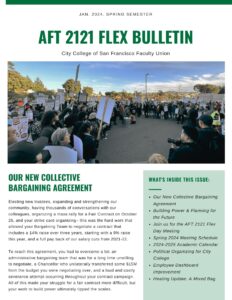
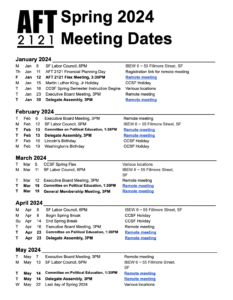
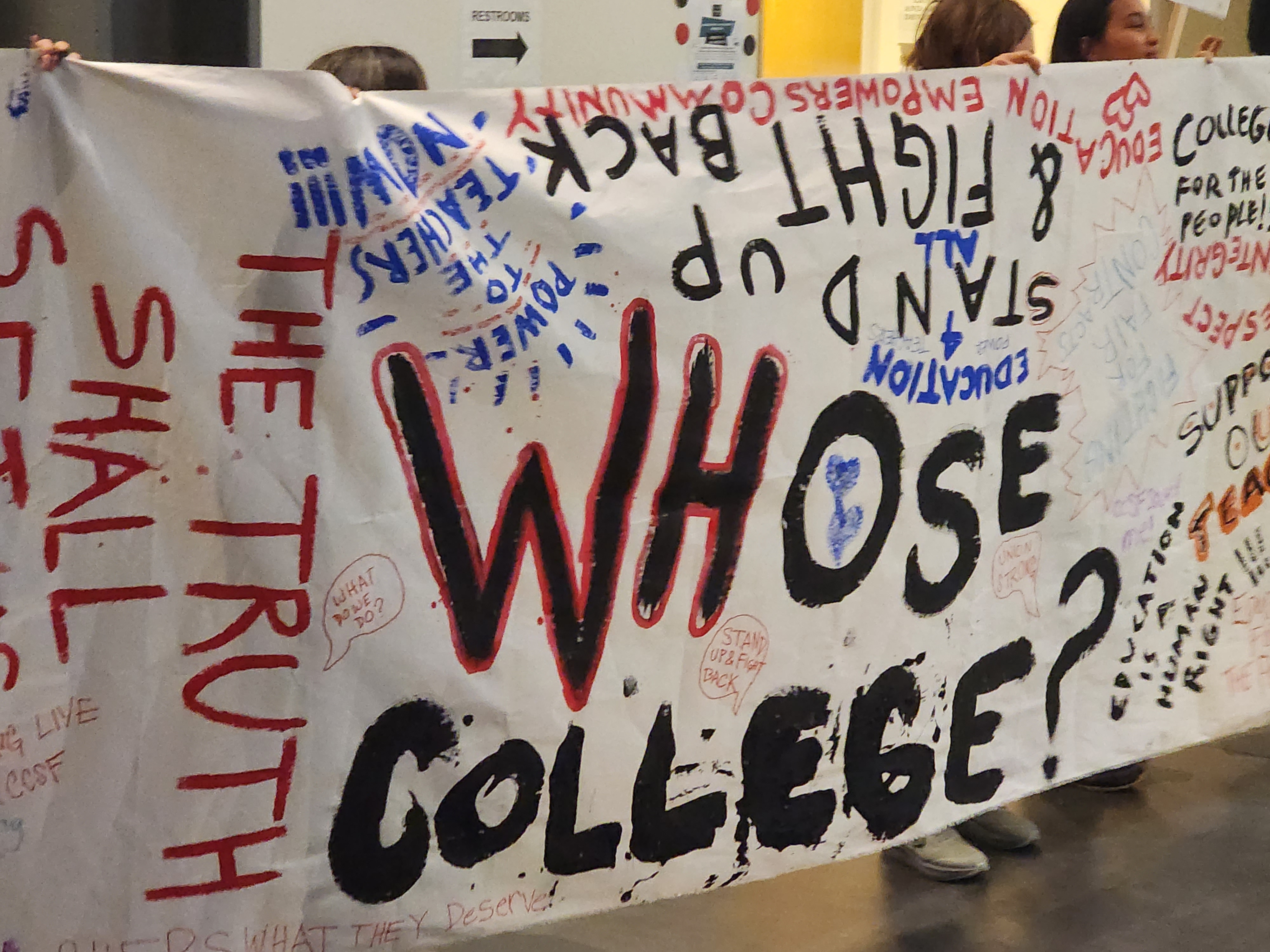
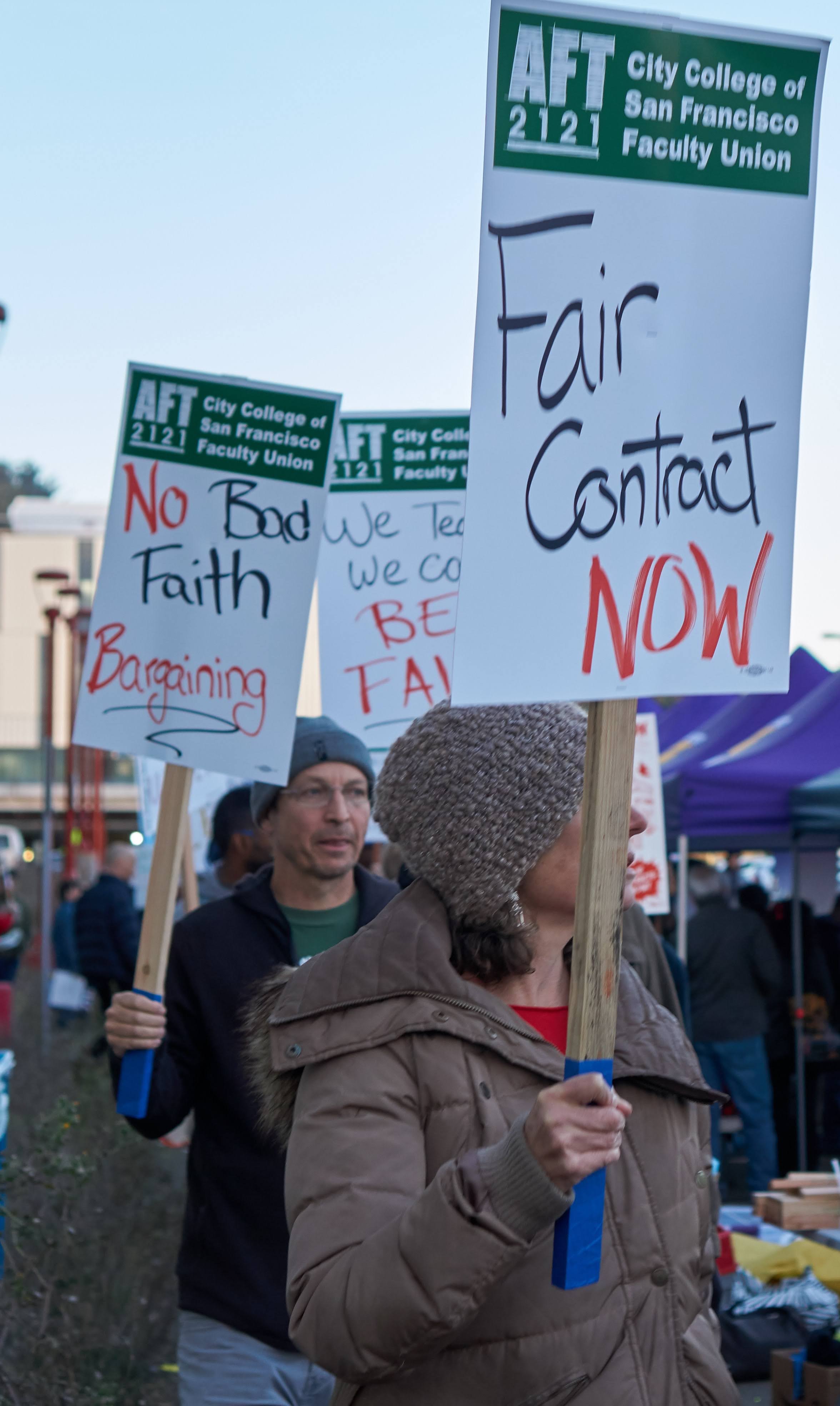
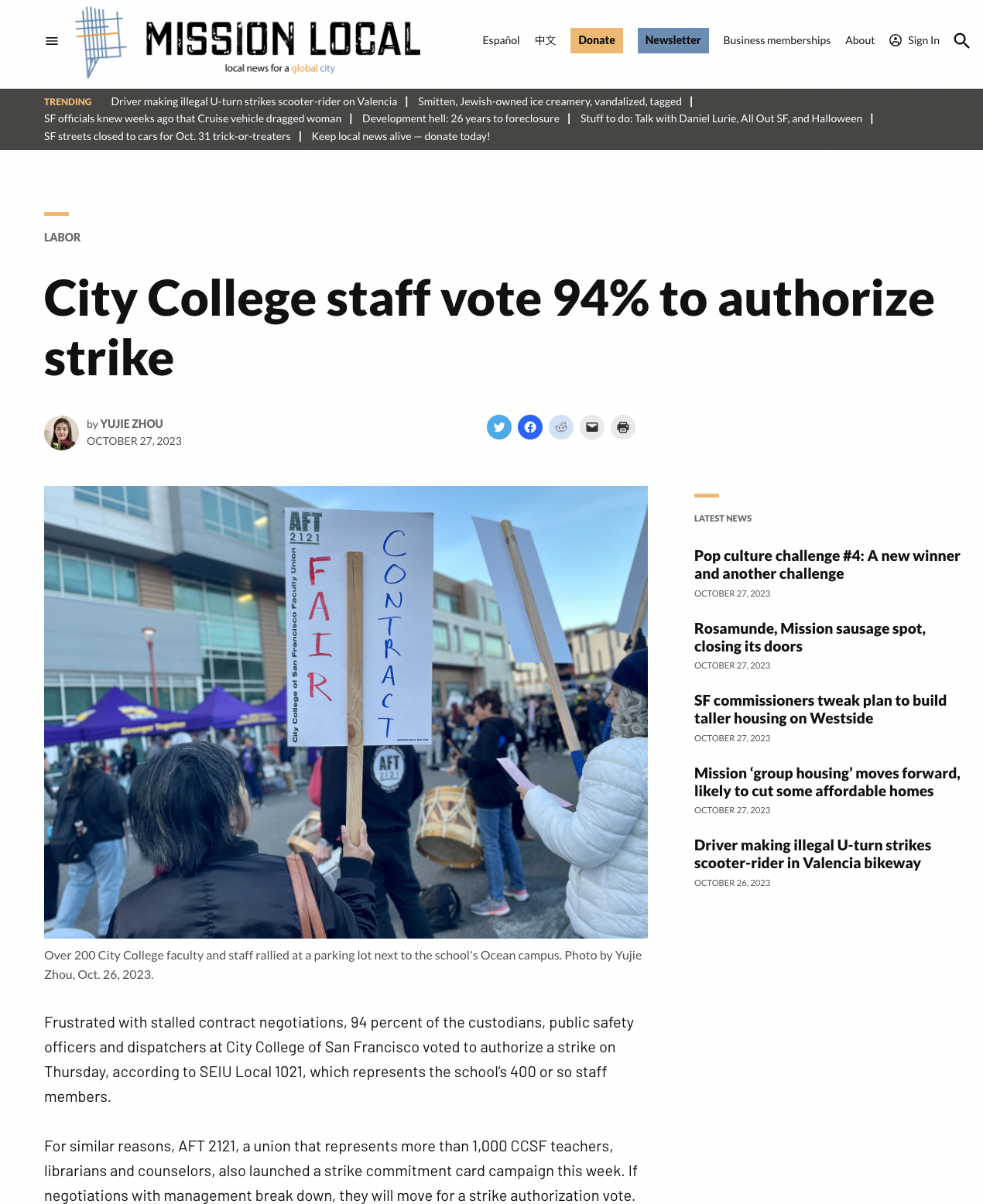
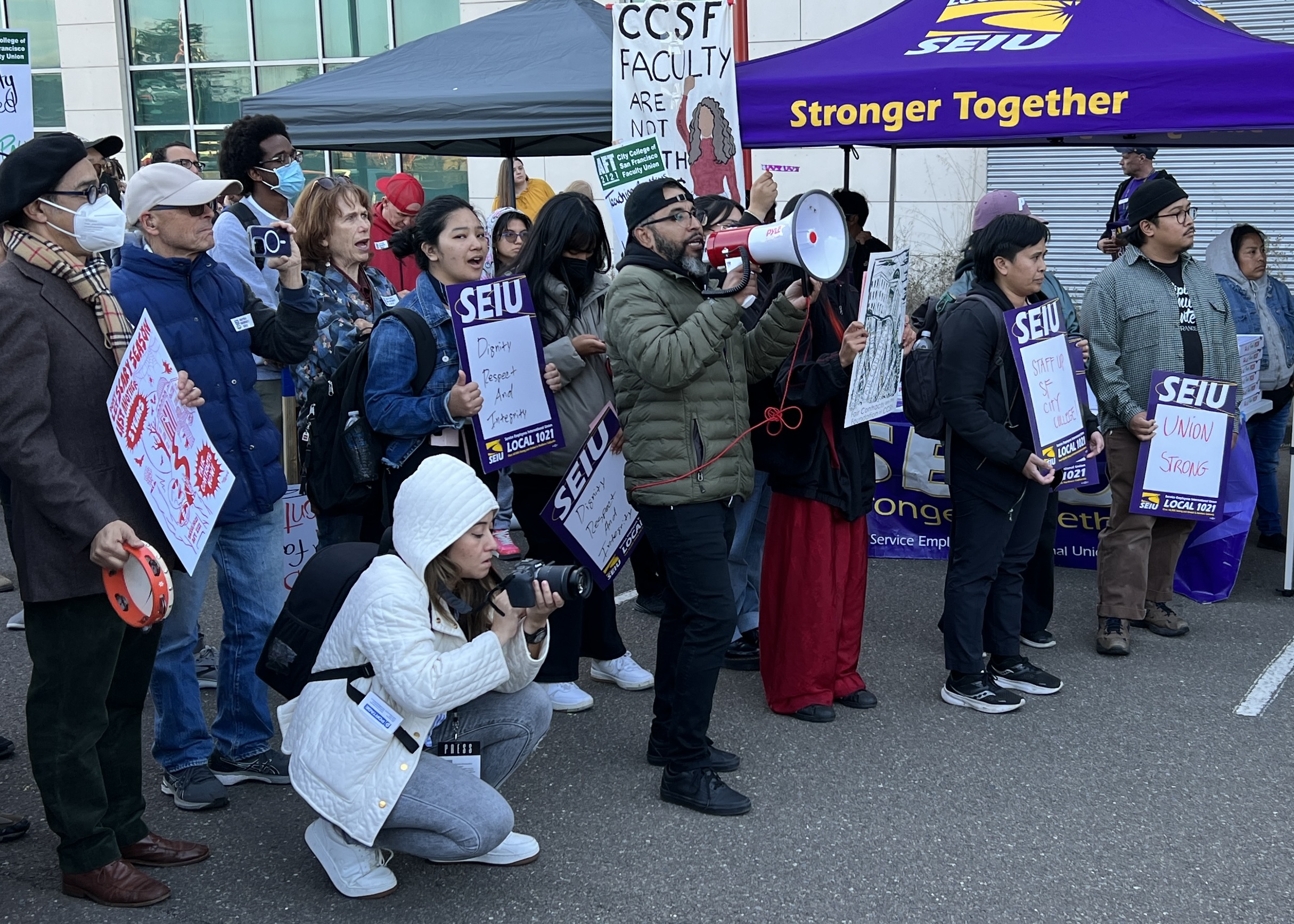
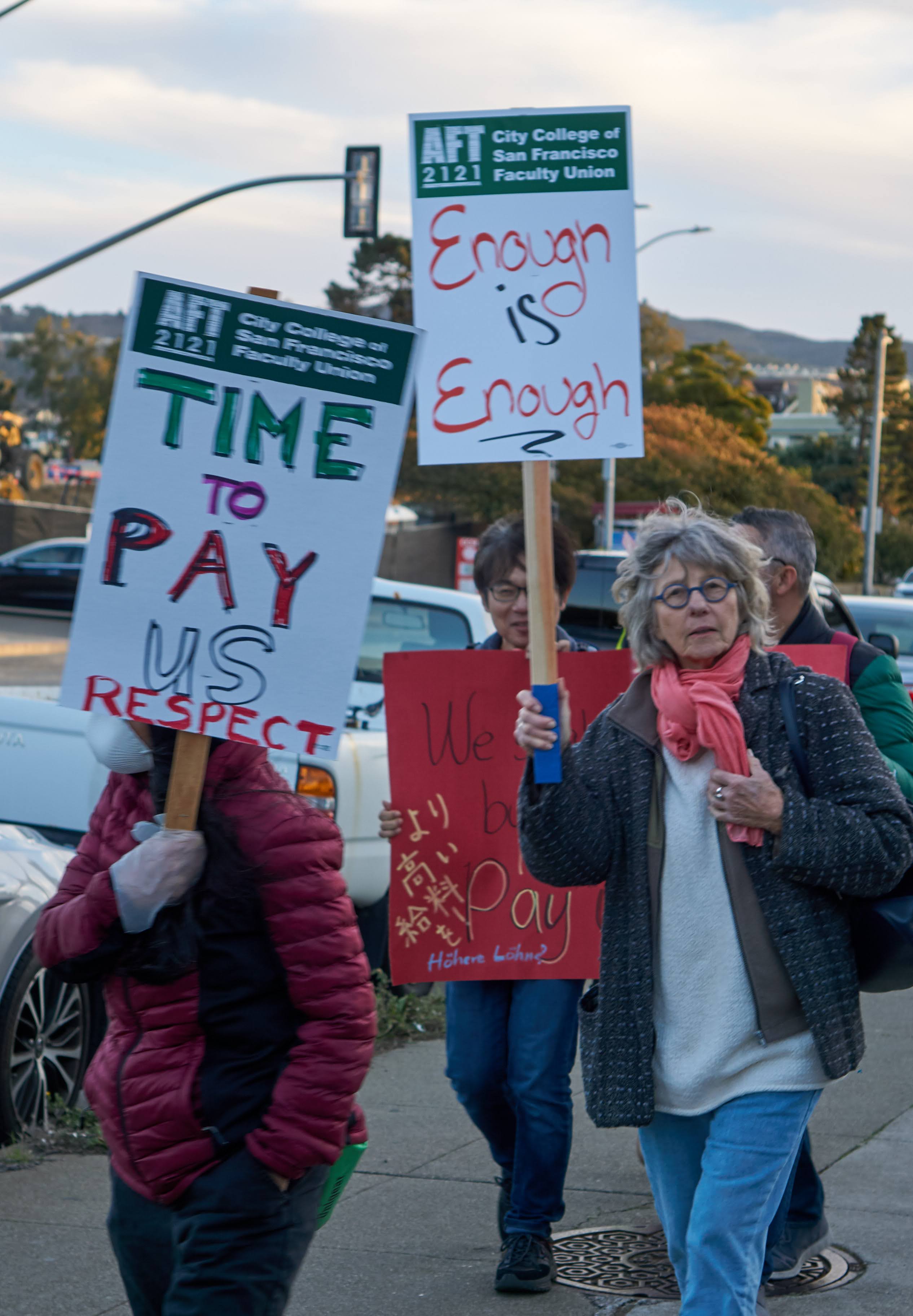
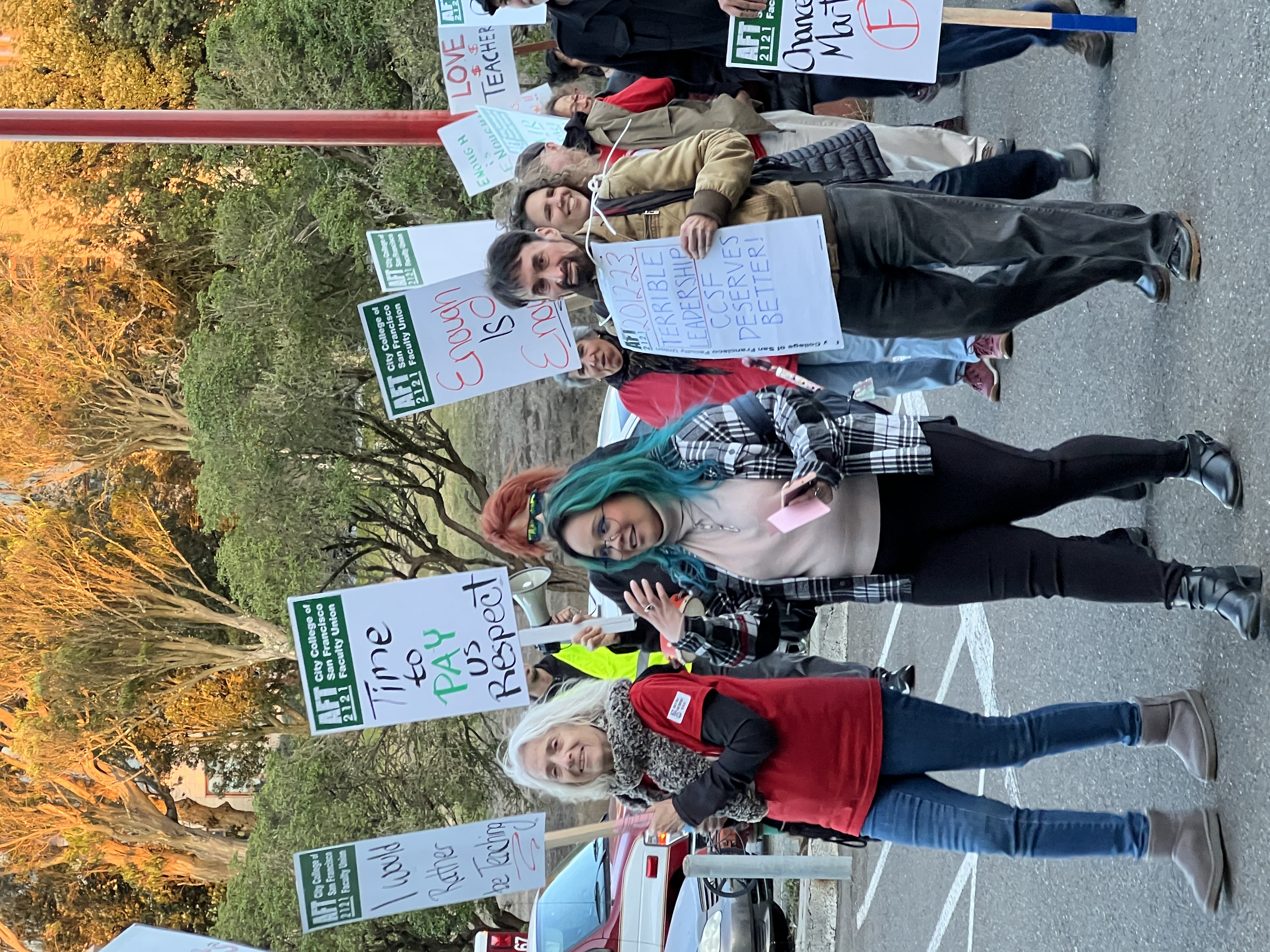
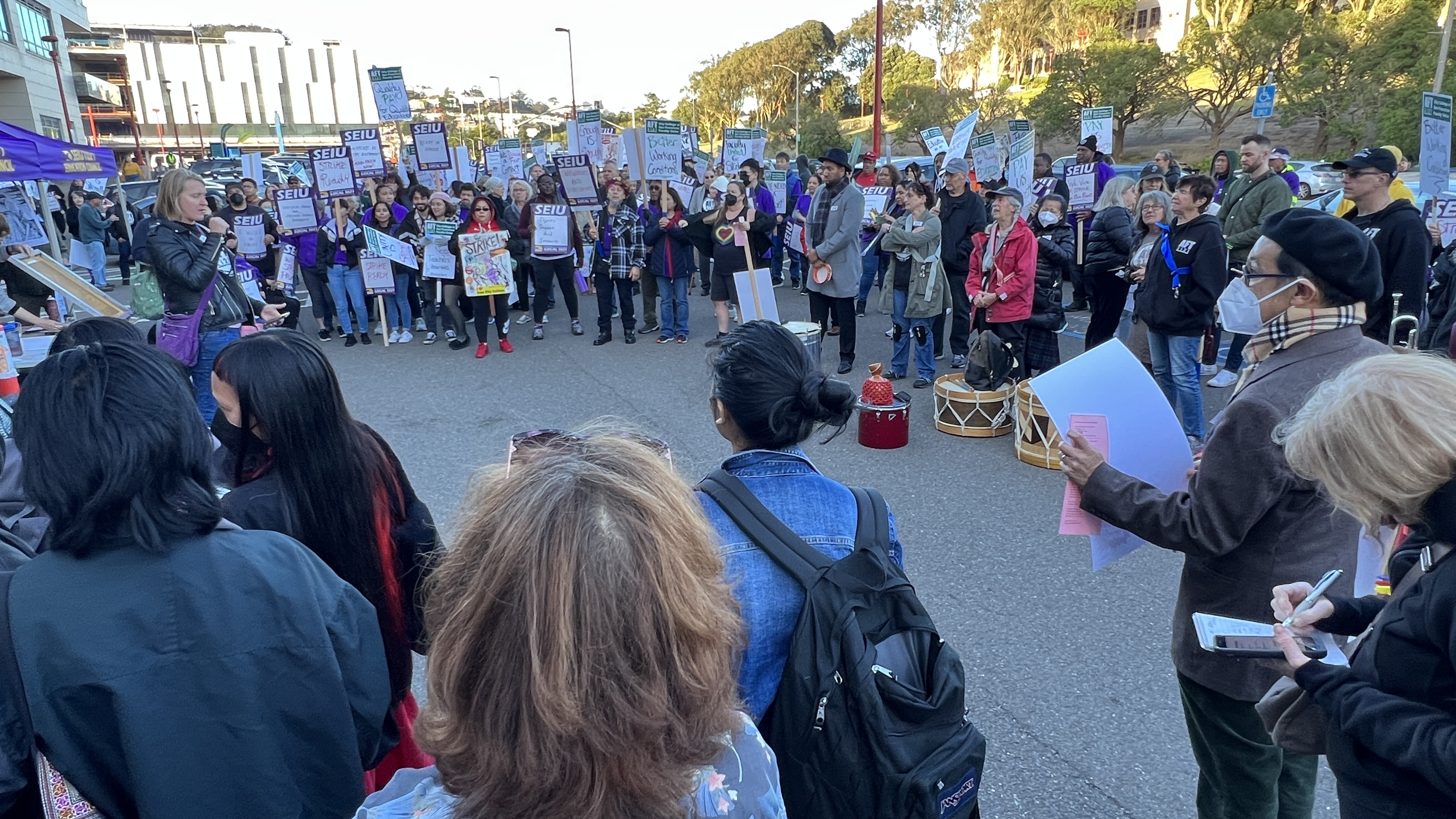
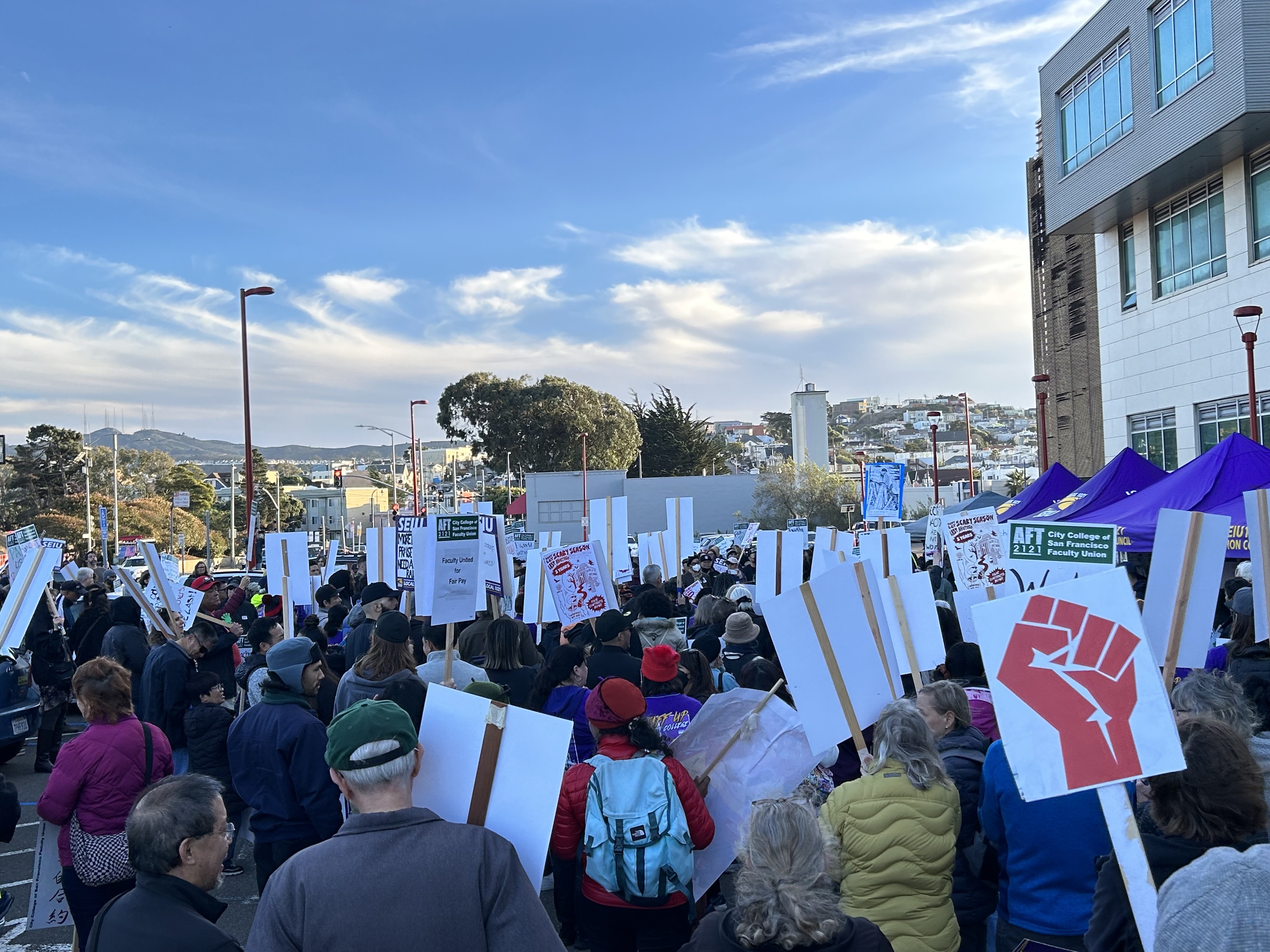
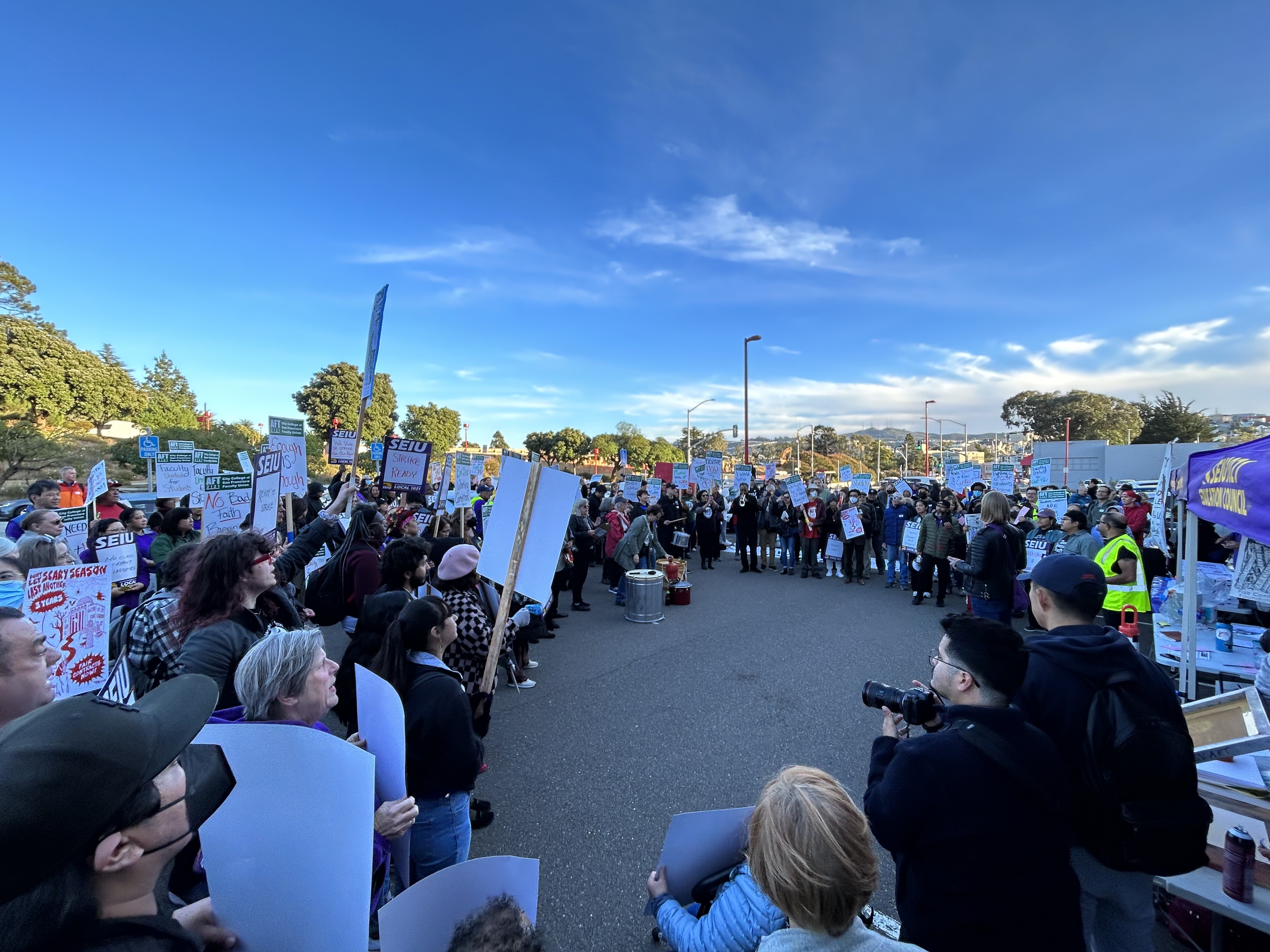
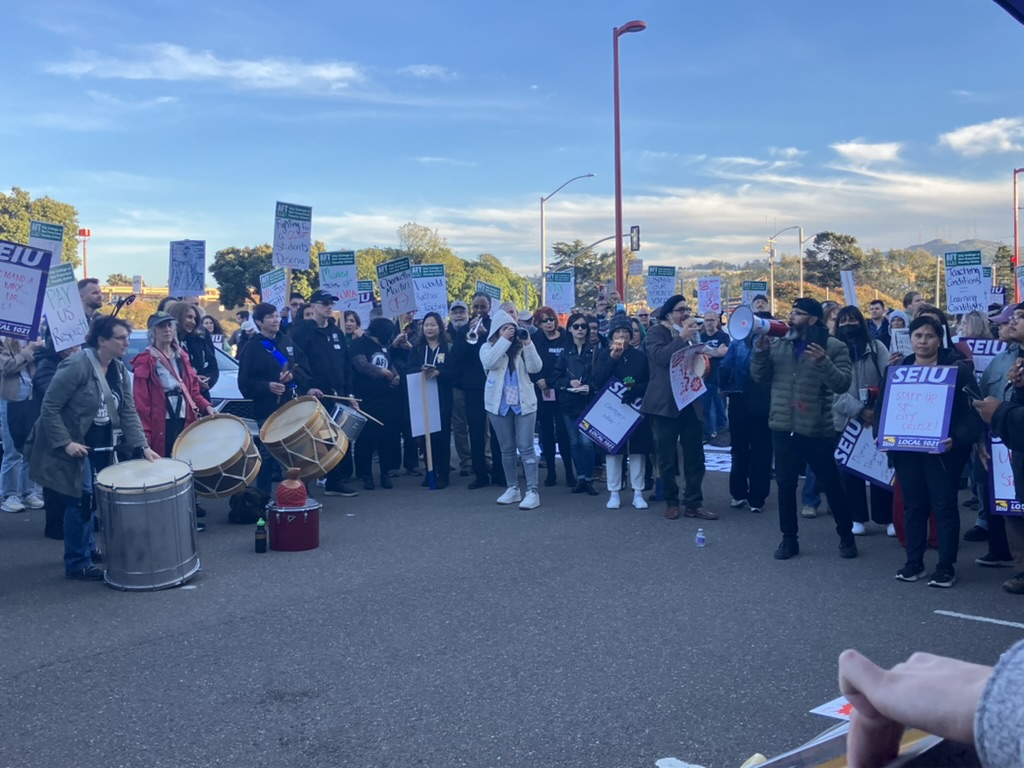
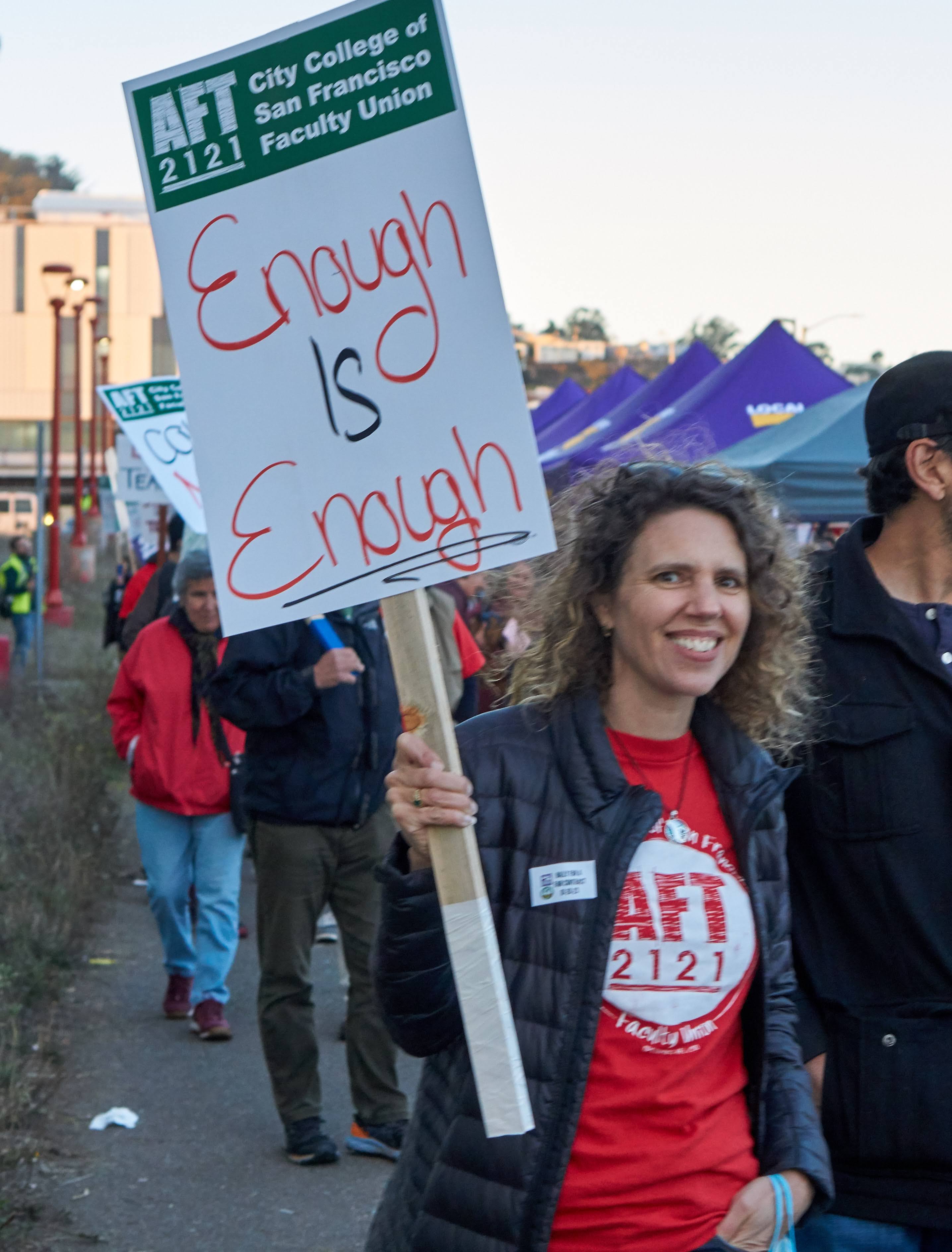

Follow Us!